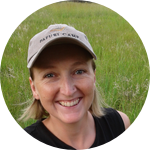About This Project
African rhinos are of great economic and ecological importance within their range states,but are threatened by poaching for their horns as Traditional medicine, ornaments and status symbols. Recent research has focussed on anti-poaching, dehorning and horn treatments as deterrents, with less interest paid to improving long-term management of these shrinking populations. This study aims to analyse behavioural, demographic and genetic patterns to compile a 'Genetic Metapopulation Management Plan'.
Ask the Scientists
Join The DiscussionWhat is the context of this research?
The numbers of rhinos poached each year in South Africa rose from 13 in 2007, to 1215 during 2014, and continues to this day. The second greatest direct threat to South African rhino populations after poaching, is poor management, which can lead to deaths from fighting and reduced birth rates if fenced reserves are too small for the population to function and grow. The increase in poaching has led to the need to rapidly remove rhinos from high poaching zones, to safer and better protected reserves, but without the luxury of time for adequate planning. This research is focussed on designing a genetic management protocol for reserve managers based on relatedness levels and population structure in order to forecast prospective reproductive and genetic fitness of new populations.
What is the significance of this project?
As deaths from poaching continue to rise in South Africa, in 2016 we reached the stage where the rate of population growth from natural births, is lower than the rate of decline from deaths, and this could have catastrophic consequences on the future of this species. This project is taking a proactive approach by assessing the importance of various demographic factors on maximising the potential population growth rates when rhinos are moved to smaller and safer reserves for their protection. It aims to provide reserve managers and rhino owners with a 'rule of thumb' approach to relocating rhinos, during a crisis that does not allow much time for extensive forethought and planning. This will be an immediately implementable and practical conservation tool for wildlife managers.
What are the goals of the project?
The lab work for this project was previously concluded and the large demographic dataset has since been analysed to complement the genetic information. The 1st manuscript arising from this research is due for submission in the next week.
The next goal is to submit the thesis on 31st October. After this, the 2nd manuscript preparation will commence while awaiting feedback from examiners.
The end goal is to compile all the results into a user-friendly "Genetic Metapopulation Management Plan" that will allow managers to decide which rhinos to move where, when, and why. The focus is to ensure the results have maximum impact and reach the widest audience possible, so presentation opportunities and popular articles will be pursued once publications have been accepted.
Budget
I have already processed the samples in the lab and completed analyses. The first manuscript is due for submission in the next two weeks and the thesis deadline is 31st October. This funding would allow me to focus my efforts and energy completely on the final thesis corrections from examiners, and also to compile subsequent manuscript drafts before moving on to the next full time venture. There is the possibility that some more data could be available for inclusion in the manuscripts, which will require some additional analyses that this campaign could buy me the time to complete. Finally, it would be incredible to be able to get to the field site and actually see some of the rhinos I have studied and written about over the last few years, as well as be able to present the final outcomes to the reserve management and field staff.
Any donations of $500+ will receive personal acknowledgement on all conference presentations and one of my favourite rhino prints from past field work.
Endorsed by
 Project Timeline
Project Timeline
The timeline for this research is now imminent. The research is nearing completion in the next few weeks, but then needs to be disseminated to stakeholders and the general public in the form of peer-reviewed publications, popular articles and presentations.
Once the thesis has been submitted the next task is starting the second and third manuscripts, with the potential for some additional data to become available for analysis and inclusion.
Oct 12, 2017
Project Launched
Oct 16, 2017
Submit first manuscript for review
Oct 31, 2017
Submit thesis for examination
Nov 30, 2017
Submit second manuscript for review
Dec 15, 2017
Receive thesis corrections from examiners to action
Meet the Team
Gayle Pedersen
Growing up in South Africa, rhinos were always in the headlines due to their fight for survival after major hunting and poaching pressures during the 20th Century, and I had a particular affinity for any animal that was suffering purely as a result of our destructive actions as a species. So my fascination and love of rhinos was born when I was around 9 years old.
It has been my life's mission to do anything and everything in my power to improve the future of these incredible ancient giants of the African bushveld, which is what brought me back to South Africa after 13 years living in England. I saw a white rhino MSc advertised and jumped at this incredible opportunity, which allowed for a year of wandering around a very wild section of Kruger National Park, with just my tracker for company, while learning the movements and habitat use of these newly introduced rhinos. If that experience didn't seal the deal in terms of my commitment to rhino conservation, then nothing ever could.
I have been described as tenacious and gritty due to my perseverance on this mission to complete my PhD, despite formidable hurdles. My aim has been to investigate topics that are current and critical, and not just carry out a PhD for the sake of the three letters after my name. And it was around 2008/9, when I started conceptualising my PhD ideas, that the shocking poaching statistics started making headlines. I began to shift my focus to investigate topics that could be of benefit to the people on the frontline of the poaching saga. I have some incredible and potentially ground-breaking research topics, initiated by conversations with various rhino experts. I have an incredible new advisor who has helped me greatly to shape my ideas and focus efforts with constant, unfaltering support....and now I just need that final financial boost to get me through the final year of this incredible adventure.
Additional Information
Since my last campaign I was lucky enough to be accepted to present some preliminary results at the 15th International Elephant and Rhino Conservation and Research Symposium at Singapore Zoo, November 2016. I also presented my research in a Women in Ecology webinar lecture series hosted by Saint Mary’s College, Indiana, in September 2017. I am taking every opportunity to communicate my research interests and findings with the general public, and one of my top priorities is ensuring I have the time to publish the final results from my thesis in peer-reviewed journals, and preferably a number of popular articles as well.
I intend to thank every backer in my final corrected thesis, even if I have to put it in as an appendix, and I will ensure everyone receives a copy of my thesis and any popular articles that arise from it. My lab notes will be much more exciting and regular than my previous campaign, as I will have a bit more time available once the thesis is finally submitted. Any donations of $500+ will receive personal acknowledgement on all conference presentations and one of my favourite rhino prints from past field work.
Project Backers
- 38Backers
- 100%Funded
- $2,506Total Donations
- $62.26Average Donation



